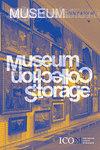An Abrupt and Brutal Audit: An Analysis of the Crisis Management Response of UK Museums and Heritage Attractions to the Covid-19 Pandemic
IF 0.4
4区 艺术学
0 ART
引用次数: 1
Abstract
Abstract In March 2020, museums and heritage sites faced indefinite closure as the United Kingdom government sought to curb the spread of a new virus. Covid-19 brought a new kind of crisis to the heritage sector, but it also brought a learning opportunity. This article outlines a research project, conducted at the height of the pandemic, which sought to assess the museum and heritage sector crisis management response to Covid-19. In the summer of 2020, ten interviews were conducted with managers working in UK museum and heritage sites. In addition, contemporary literature relating to the impact of Covid-19 on the sector was reviewed. Three key themes were identified and explored: Experience and planning; Impact on staff; Coordination and collaboration The study highlighted a range of lessons learned. Firstly, it showed that in the main, the sector was not prepared to deal with a pandemic of this nature. Secondly, it showed that the emotional impact on staff was profound; but also that there were increased efforts to support wellbeing. Thirdly, the research showed that there was a lack of clear information from official channels, and that this impacted decisionmaking at a site level. However, it has also revealed evidence that in the absence of official guidance, sector collaboration was significant and viewed by participants as a key positive outcome of the crisis. The article concludes with recommendations to improve crisis management in the future and offers practical resources as a starting point for greater sector preparedness.突然而残酷的审计:英国博物馆和遗产景点对Covid-19大流行的危机管理反应分析
2020年3月,由于英国政府试图遏制一种新病毒的传播,博物馆和遗产地面临无限期关闭。2019冠状病毒病给遗产部门带来了一种新的危机,但也带来了学习的机会。本文概述了在疫情最严重时进行的一个研究项目,该项目旨在评估博物馆和遗产部门对Covid-19的危机管理反应。2020年夏天,我们对在英国博物馆和遗产遗址工作的管理人员进行了10次采访。此外,还回顾了与Covid-19对该部门影响有关的当代文献。确定并探讨了三个关键主题:经验和规划;对员工的影响;该研究强调了所吸取的一系列经验教训。首先,它表明,该部门基本上没有准备好应对这种性质的大流行病。其次,这表明情绪对员工的影响是深远的;但也有更多的努力来支持幸福。第三,研究表明,官方渠道缺乏明确的信息,这影响了场地层面的决策。然而,它也揭示了证据,表明在缺乏官方指导的情况下,部门合作是重要的,并被参与者视为危机的一个关键积极成果。文章最后提出了改善未来危机管理的建议,并提供了实际资源,作为加强部门准备的起点。
本文章由计算机程序翻译,如有差异,请以英文原文为准。
求助全文
约1分钟内获得全文
求助全文
来源期刊

MUSEUM INTERNATIONAL
ART-
CiteScore
0.60
自引率
0.00%
发文量
0
期刊介绍:
In its new revised form Museum International is a forum for intellectually rigorous discussion of the ethics and practices of museums and heritage organizations. The journal aims to foster dialogue between research in the social sciences and political decision-making in a changing cultural environment. International in scope and cross-disciplinary in approach Museum International brings social-scientific information and methodology to debates around museums and heritage, and offers recommendations on national and international cultural policies.
 求助内容:
求助内容: 应助结果提醒方式:
应助结果提醒方式:


